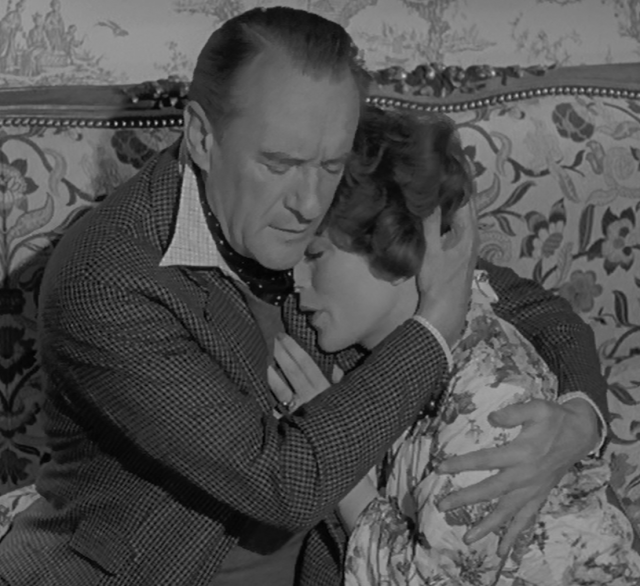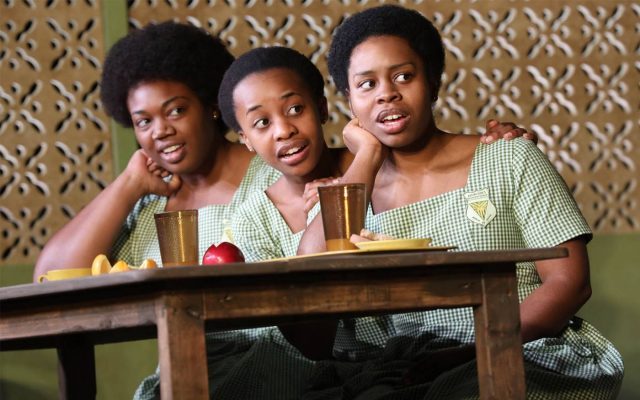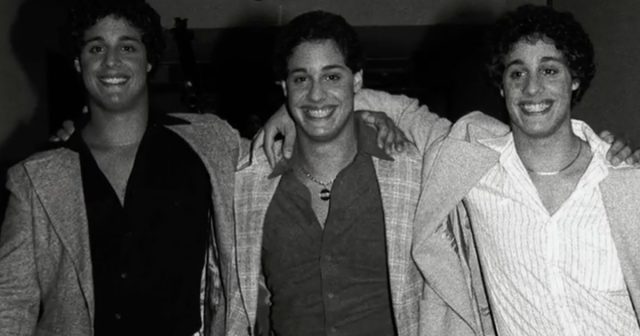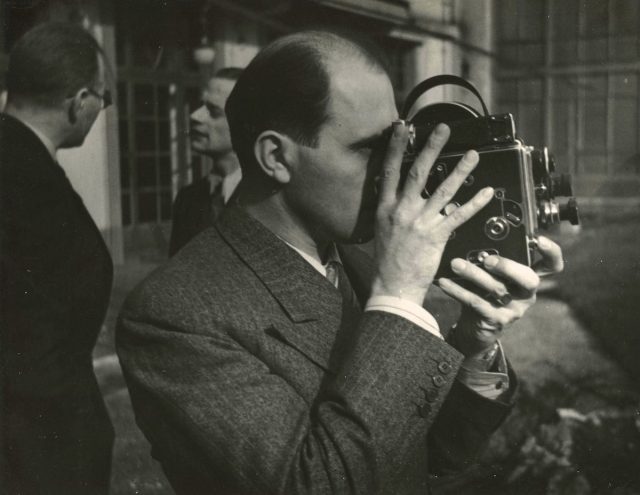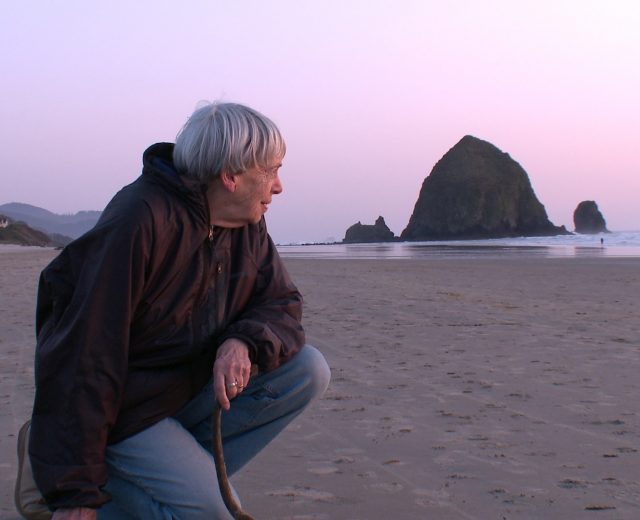
Superb documentary looks at the life and career of genre-redefining writer Ursula K. Le Guin
WORLDS OF URSULA K. LE GUIN (Arwen Curry, 2018)
SVA Theatre
333 West 23rd St. between Eighth & Ninth Aves.
Saturday, November 10, 11:45 am
Festival runs November 8-15
www.docnyc.net
worldsofukl.com
If you’ve never read anything by Ursula K. Le Guin, you’re going to want to fill your bookshelf with her works after watching Arwen Curry’s superb documentary, Worlds of Ursula K. Le Guin, making its New York City premiere November 10 at the DOC NYC festival. The intimate portrait focuses on the Berkeley-born author’s writings and how she changed the face of literature for science fiction and fantasy as well as for women authors. “What Ursula was having to navigate was the societal prejudice against science fiction, against the fantastic, and against children’s fiction. All of these things were marginalized,” award-winning writer Neil Gaiman says. Le Guin points out, “The critics had dismissed science fiction and fantasy as essentially worthless, and I knew better. I knew that my work was not second rate, that it was of literary value.” Curry spent seven years researching Le Guin and following her to public appearances and filming her in her longtime home of Portland, Oregon. Le Guin, the author of such masterful novels as A Wizard of Earthsea, The Tombs of Atuan, The Left Hand of Darkness, and The Dispossessed as well as the highly influential short story “The Ones Who Walk Away from Omelas,” died in January 2018 and was interviewed for the film in her eighties; from her deeply wrinkled face emerges the voice and infectious enthusiasm of a much younger woman.
Among the authors singing Le Guin’s praises are Gaiman, David Mitchell, Michael Chabon, Samuel R. Delany, Adrienne Maree Brown, China Miéville, Theodora Goss, Margaret Atwood, and Vonda N. McIntyre, along with professor emeritus James Clifford, editor Annalee Newitz, and Le Guin biographer Julie Phillips, who universally rave not only about what a great writer she was but what a wonderful human being too. Le Guin was the daughter of highly regarded anthropologists Alfred L. Kroeber and Theodora Kroeber, who both studied indigenous cultures destroyed by colonial impact; familiarity with her parents’ work may have contributed to Le Guin’s immense skill of world-building in her books. “Imaginative fiction trains people to be aware that there are other ways to do things and other ways to be, that there is not just one civilization and it is good and it is the way we have to be,” she says in the film. Curry also speaks with Le Guin’s husband and their children and goes to Cannon Beach with Le Guin, a visit beautifully captured by cinematographer Andrew Black. Curry includes home movies, family photographs, speeches, marked-up manuscripts, and shots of Le Guin working at a typewriter; in addition, animator Molly Schwartz brings to life various book covers and a handful of scenes narrated by Le Guin. It’s utterly charming watching Le Guin discuss her career, a gentle soul in touch with who she is and what she does. She even participated in the Kickstarter campaign to fund the project, offering signed books, rare special editions, a framed sketch of her cat, a meet-and-greet, and more. The American Masters presentation is screening at the SVA Theatre at 11:45 am on November 10, with Curry and Schwartz on hand to talk about the film.
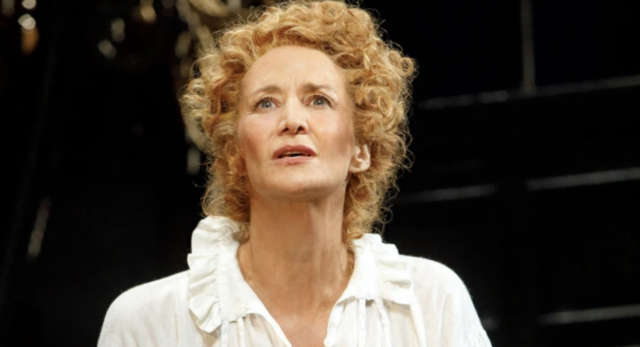
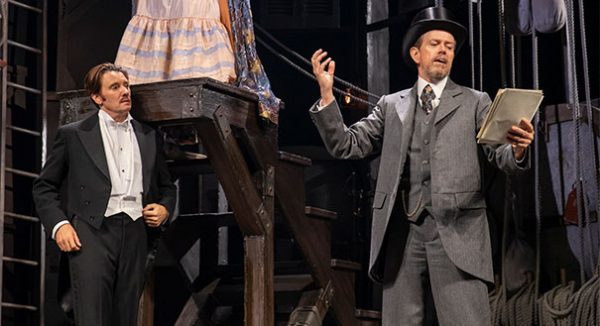
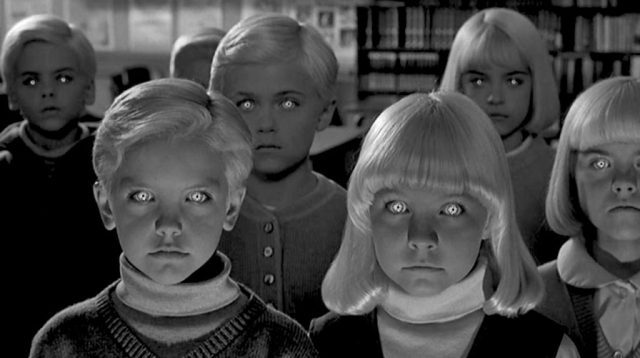
 The Rubin Museum’s Cabaret Cinema series “Sci Fi Cine Club Kolkata” comes to a creepy close November 9 with the classic 1960 British sci-fi horror flick Village of the Damned. Based on John Wyndham’s 1957 novel, The Midwich Cuckoos — Wyndham also wrote The Day of the Triffids as John Harris, among other books and at least one other pseudonym — Village of the Damned was the first film shown by Indian master and self-described “science-fiction addict” Satyajit Ray at the Sci Fi Cine Club he started in Kolkata in January 1966. The story combines postwar paranoia with a fear of alien invasion — as well as the normal worries associated with childbirth. On what appeared to be a regular afternoon in the quiet little English rural town of Midwich, every living being passes out at the same exact time. When they awaken, no one’s sure what happened — but two months later, every woman able to carry a child is pregnant, including Anthea Zellaby (Barbara Shelley), who is married to Professor Gordon Zellaby (George Sanders), a much older man who did not think it possible he could become a father. When the babies are all born on the same day and on an accelerated schedule, everyone knows there is something strange — the infants’ eerie eyes are a pretty big giveaway — but they decide to raise the children nonetheless. Professor Zellaby sees this as a terrific opportunity for research — even involving the boy born to Anthea, David (Martin Stephens), who appears to be the leader of the blond-haired bunch — while military men Alan Bernard (Michael Gwynn) and General Leighton (John Phillips) are far more skeptical of the town’s, and the world’s, future.
The Rubin Museum’s Cabaret Cinema series “Sci Fi Cine Club Kolkata” comes to a creepy close November 9 with the classic 1960 British sci-fi horror flick Village of the Damned. Based on John Wyndham’s 1957 novel, The Midwich Cuckoos — Wyndham also wrote The Day of the Triffids as John Harris, among other books and at least one other pseudonym — Village of the Damned was the first film shown by Indian master and self-described “science-fiction addict” Satyajit Ray at the Sci Fi Cine Club he started in Kolkata in January 1966. The story combines postwar paranoia with a fear of alien invasion — as well as the normal worries associated with childbirth. On what appeared to be a regular afternoon in the quiet little English rural town of Midwich, every living being passes out at the same exact time. When they awaken, no one’s sure what happened — but two months later, every woman able to carry a child is pregnant, including Anthea Zellaby (Barbara Shelley), who is married to Professor Gordon Zellaby (George Sanders), a much older man who did not think it possible he could become a father. When the babies are all born on the same day and on an accelerated schedule, everyone knows there is something strange — the infants’ eerie eyes are a pretty big giveaway — but they decide to raise the children nonetheless. Professor Zellaby sees this as a terrific opportunity for research — even involving the boy born to Anthea, David (Martin Stephens), who appears to be the leader of the blond-haired bunch — while military men Alan Bernard (Michael Gwynn) and General Leighton (John Phillips) are far more skeptical of the town’s, and the world’s, future.